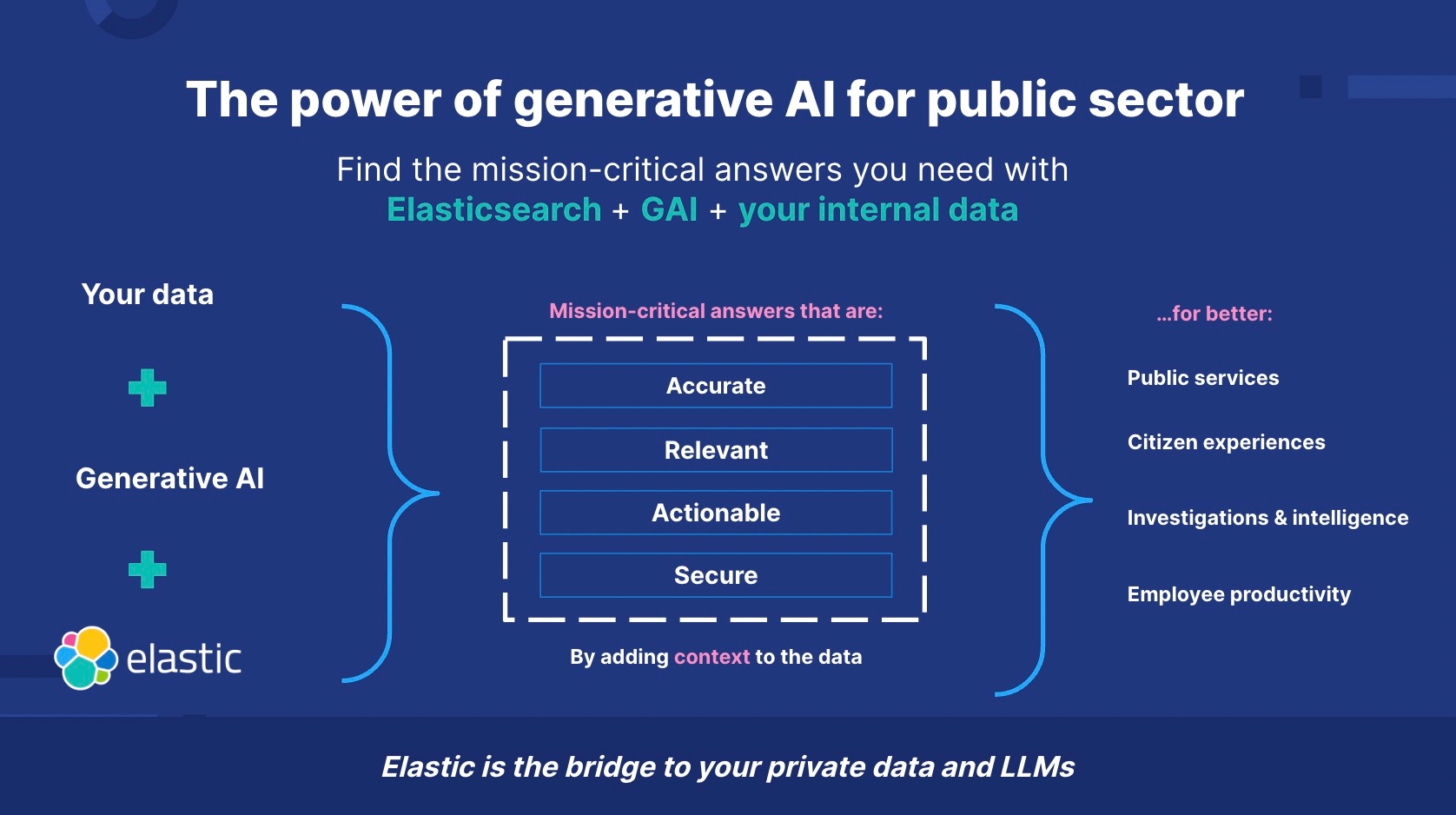Palantir's NATO Deal: A Revolution In Public Sector AI?

Table of Contents
The Scope of Palantir's NATO Contract
Palantir's contract with NATO represents a substantial investment in integrating its advanced AI platforms into the alliance's operations. While the exact financial details remain undisclosed, the agreement signifies a commitment to leveraging Palantir's technology across various NATO entities. This involves deploying its flagship platforms, Gotham and Foundry, to enhance data analysis and operational efficiency.
- Specific platforms and technologies: Palantir is deploying its Gotham platform, primarily for intelligence analysis, and Foundry, a broader data integration and analytics platform. These tools allow for the fusion of diverse data sources, creating a comprehensive operational picture.
- Types of data being integrated and analyzed: The data integrated encompasses intelligence reports, logistical information, cybersecurity threat data, and potentially even social media and open-source intelligence. This multi-faceted approach aims to provide a holistic understanding of various security challenges.
- Geographic scope of the deployment: The deployment is expected to span across multiple NATO member states, allowing for collaborative data sharing and analysis across the alliance. The exact geographic extent is not publicly available but likely covers various command structures and operational theaters.
- Timeline for implementation and anticipated impact: The implementation is a phased rollout, likely stretching over several years. The anticipated impact includes significant improvements in situational awareness, operational efficiency, and decision-making processes.
Transformative Potential for Allied Operations
Palantir's technology offers the potential to significantly enhance NATO's operational efficiency and effectiveness across various domains. Its AI-powered platforms promise to revolutionize how the alliance gathers, analyzes, and utilizes information.
- Enhanced situational awareness through data fusion: By integrating diverse data sources, Palantir's platforms provide a comprehensive, real-time understanding of the operational environment, significantly improving situational awareness.
- Improved intelligence gathering and analysis: AI-powered tools can analyze vast amounts of intelligence data more efficiently than human analysts alone, identifying patterns and threats that might otherwise be missed.
- Streamlined logistical operations and resource allocation: Optimizing supply chains and resource allocation is crucial for military effectiveness. Palantir's systems can improve resource management and logistical planning, minimizing inefficiencies.
- More efficient cybersecurity defense against threats: NATO faces constant cyber threats. Palantir's AI can help identify and respond to these threats more effectively, safeguarding critical infrastructure and data.
- Better decision-making processes based on data-driven insights: By providing actionable intelligence and insights, Palantir’s systems can support faster and more informed decision-making within NATO's command structures.
Addressing Concerns Regarding Data Privacy and Security
The use of AI in the public sector, particularly within a sensitive context like NATO, raises significant concerns about data privacy and security. Handling sensitive information requires robust safeguards and transparency.
- Data sovereignty issues and compliance with regulations: Compliance with data privacy regulations (e.g., GDPR) across different member states is crucial. Ensuring that data handling adheres to relevant legal frameworks is paramount.
- Potential for misuse of AI-driven insights: The potential for bias in algorithms and the misuse of AI-generated insights for surveillance or other unethical purposes must be carefully addressed.
- Safeguarding against data breaches and cyberattacks: Robust cybersecurity measures are critical to prevent unauthorized access and data breaches. Protecting sensitive data from malicious actors is a top priority.
- Transparency and accountability mechanisms: Mechanisms for transparency and accountability in the use of AI systems are essential to maintain public trust and address potential concerns.
- Public oversight and ethical considerations: Open discussion and public oversight of the AI systems’ deployment are necessary to ensure ethical and responsible use of this technology.
Alternative Public Sector AI Solutions
While Palantir is a prominent player, other AI solutions exist within the public sector. Comparing these alternatives offers a broader perspective on the market and Palantir's unique strengths.
- Mention specific competitors and their technologies: Companies like IBM, Google Cloud, and Microsoft Azure also offer AI-powered platforms for government agencies, each with its own strengths and limitations.
- Highlight advantages and disadvantages of different approaches: Different platforms may excel in specific areas, such as natural language processing, image recognition, or data visualization.
- Emphasize unique selling propositions of Palantir’s approach: Palantir's focus on data integration and its experience in supporting national security agencies potentially give it an edge in this particular context.
The Future of Public Sector AI Adoption
The Palantir-NATO deal could significantly impact the wider adoption of AI within the public sector. This partnership may act as a catalyst for broader implementation and innovation.
- Increased investment in public sector AI initiatives: The success of this partnership could encourage other governments and international organizations to invest more heavily in AI technologies.
- Development of new AI-driven capabilities for governments: The experience gained from this collaboration could lead to the development of new AI-driven tools and capabilities for improved governance and public services.
- Potential for standardization and interoperability: A successful integration across NATO could pave the way for standardization and interoperability of AI systems across different government agencies.
- Implications for national security and defense strategies: The use of AI in national security and defense is likely to become increasingly prevalent, reshaping strategies and capabilities.
- Ethical and societal considerations of widespread AI adoption: As AI adoption expands, addressing ethical and societal considerations will become increasingly important to ensure responsible and beneficial use.
Conclusion
The Palantir-NATO partnership represents a pivotal moment for public sector AI. This agreement demonstrates the transformative potential of AI in enhancing national security and operational efficiency. However, it also highlights the need for careful consideration of data privacy, security, and ethical implications. The long-term success of this collaboration will depend on addressing these challenges effectively. Further analysis is needed to fully understand the implications of this groundbreaking deal and to explore how similar partnerships can leverage AI for improved governance and security. Continue exploring the complexities of public sector AI and its future impact.

Featured Posts
-
 10 Essential Film Noir Movies To Watch
May 10, 2025
10 Essential Film Noir Movies To Watch
May 10, 2025 -
 Prove Your Stephen King Fandom Have You Read These 5 Essential Novels
May 10, 2025
Prove Your Stephen King Fandom Have You Read These 5 Essential Novels
May 10, 2025 -
 Transgender Mouse Research And Us Government Funding Separating Fact From Fiction
May 10, 2025
Transgender Mouse Research And Us Government Funding Separating Fact From Fiction
May 10, 2025 -
 Rising Tensions The Impact Of Caravan Sites On A Uk City
May 10, 2025
Rising Tensions The Impact Of Caravan Sites On A Uk City
May 10, 2025 -
 Deborah Taylor Appointed Chair Of Nottingham Attacks Inquiry
May 10, 2025
Deborah Taylor Appointed Chair Of Nottingham Attacks Inquiry
May 10, 2025
